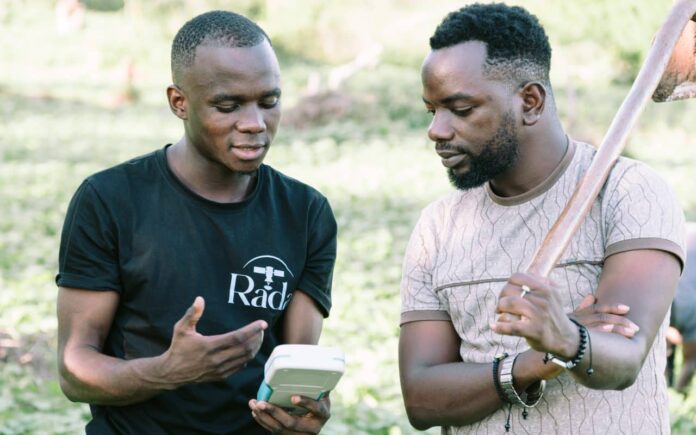Tanzania’s smallholder farmers, long reliant on ancestral weather cues, are facing unprecedented climate unpredictability.
William Karatibu, a bean and maize grower, recalls interpreting ant trails, cloud shapes, and wind to forecast rain—wisdom passed down through generations.
Yet, erratic rains, heatwaves, and floods have rendered these methods ineffective, leading to crop failures, income loss, and food insecurity.
Agriculture remains central to Tanzania’s economy: a 2023 survey shows it contributed 25.3% of GDP and involved 65% of the workforce, most being smallholder farmers in rural areas (65.1% of the population).
Despite agriculture’s importance, reliable, localized weather data is scarce, leaving farmers vulnerable to climate uncertainty.
AI to the Rescue
Artificial intelligence offers a way forward through data-driven decision-making. Essa Mohamedali, AI strategist and co-founder of the Tanzania AI Community, underscores the grassroots nature of AI adoption in Africa—led by passionate local innovators, and bolstered by Tanzania’s growing internet connectivity (72%).
Rada360, one of the winners of Climate KIC’s Adaptation & Resilience ClimAccelerator, steps into this gap by merging satellite Earth observation, AI analytics, and hyperlocal weather forecasting. Karatibu turned to Rada360 after seeking solutions online; their platform transformed his farming. Armed with accurate soil and weather data, he learned when to plant and how to fertilise optimally—and finally avoided losses.
Now, neighbors admire his lush crops and ask for advice. Rada360’s app is changing farming practices—offering hyperlocal forecasts, pest and disease alerts, fertiliser recommendations, and yield predictions to support both farmers and food-security planners.
This tech-level access transforms previously inaccessible information into actionable insights for smallholders.
Weighing AI’s Environmental Cost
But, strikingly, AI itself has environmental downsides. Large-scale AI models demand high energy, massive water for data centre cooling, and substantial materials for hardware—often tied to mining, manufacturing, and transport—and some tech giants even support faster fossil fuel extraction.
Mohamedali stresses that ethics must be integral to AI development—questioning who benefits and what costs are acceptable.
Aiming for sustainable AI inclusion, Climate KIC and AI consultancy Omdena launched a six-month Training Programme for AI-Driven Climate Change Solutions.
This equips Tanzanians with AI skills to design locally relevant climate solutions—and build familiarity, critical thinking, and innovation rooted in their contexts.
Empowering Local Innovation
All this unfolds within Climate KIC’s Adaptation Innovation Cluster, supported by SmartLab and funded by Irish Aid. The cluster fosters place-based climate adaptation by encouraging local solutions, new green start-ups, and community resilience.
The goal goes beyond Tanzania; it’s about redefining tech as something built “by, for, and from” the ground up—investing differently in innovation that centres grassroots communities.
For more click here.








